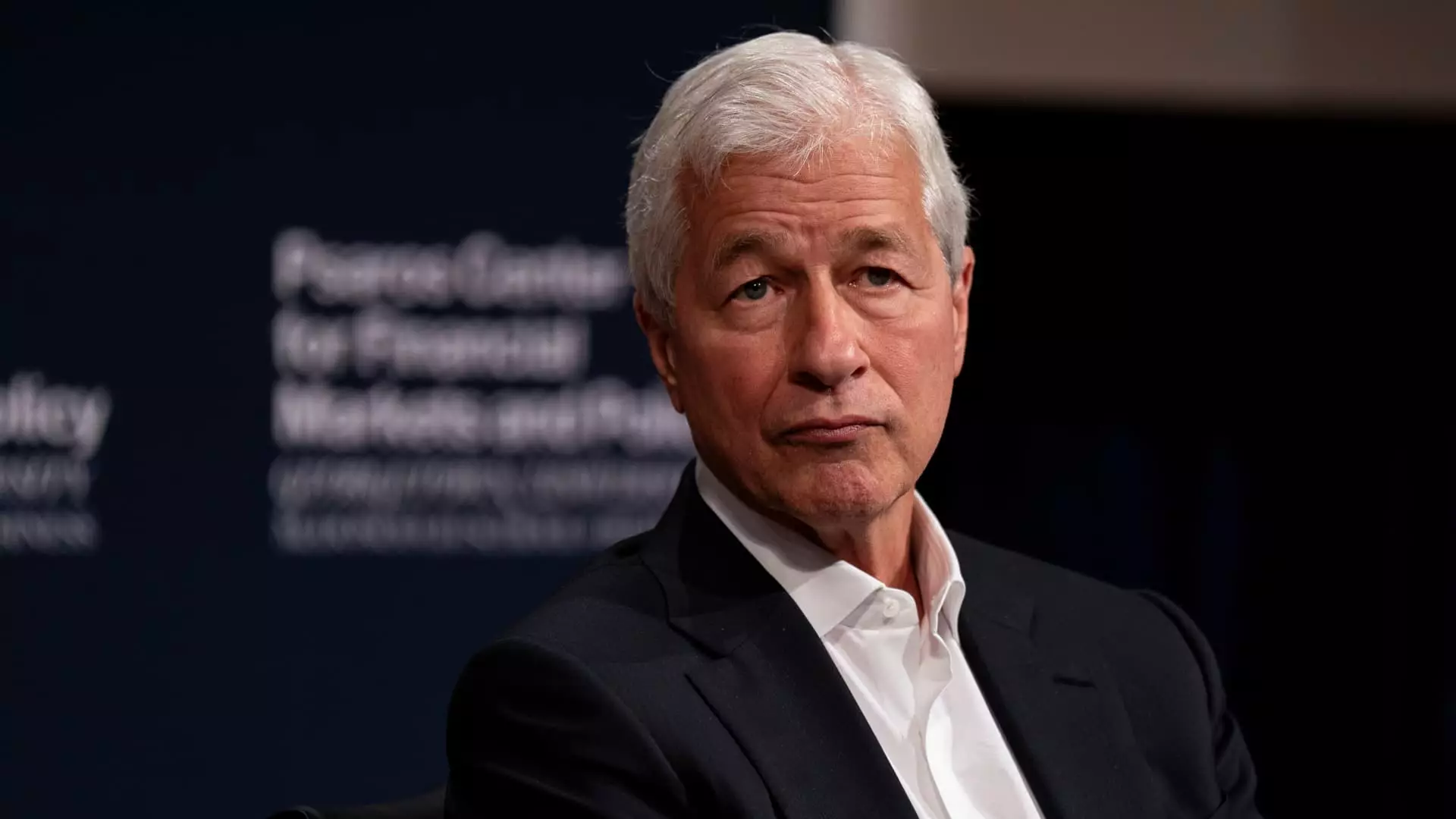The ongoing debate surrounding tariffs and their implications for the U.S. economy has been reignited by recent statements from leading financial executives, including Jamie Dimon, CEO of JPMorgan Chase. As the potential for significant tariffs looms under the administration of President Donald Trump, there is a cross-section of optimism and concern among business leaders. The fundamental question remains whether these tariffs can genuinely benefit national interests without triggering adverse inflationary effects and complicating international trade relations.
In a candid interview at the World Economic Forum, Dimon viewed the proposed tariffs not merely as a potential source of inflation but rather as an “economic tool.” He posited that, if executed correctly, these tariffs could realign trade agreements to better serve American interests. By framing tariffs as a weapon that can be strategically deployed, Dimon acknowledged both their risks and benefits, suggesting that national security considerations might outweigh short-term economic discomfort.
This perspective sets the stage for a nuanced conversation about how tariffs can be effectively utilized. Consideration must be given to who benefits from these tariffs and how they can protect American jobs and industries. Dimon’s assertion that “national security trumps a little bit more inflation” dismisses immediate concern for rising prices in favor of long-term national interests, pushing back against a narrative that positions inflation as an unequivocal negative.
The political backdrop to this tariff discourse is shaped by President Trump’s recent pronouncements targeting several nations, including Mexico, Canada, and China. Trump’s rhetoric has escalated tensions, particularly with the European Union, which he claims has treated the U.S. unfairly, exemplified by the significant trade deficit the U.S. experiences. Advocates for tariffs contend that this might be a tactical approach to renegotiate trade agreements such as the USMCA (United States-Mexico-Canada Agreement), which is up for review in 2026.
This brings attention to the interconnectedness of global economies. While some in the U.S. see tariffs as a means of rectifying trade imbalances, others argue that they may lead to retaliatory measures that could destabilize longstanding partnerships. The challenge lies in navigating these complexities effectively and ensuring that any rebalancing does not spiral into a full-blown trade war.
Dimon is not alone in his relatively optimistic assessment of tariffs. The sentiments expressed by Goldman Sachs CEO David Solomon further highlight a common industry theme: a willingness to adapt to shifting policies. Solomon remarked that such shifts could lead to a “rebalancing” of trade agreements, which could ultimately be beneficial for U.S. economic growth—if managed thoughtfully.
This acknowledgment of the potential constructive outcomes of tariffs underscores a broader acceptance within corporate America that change is necessary, even though the methods may be contentious. Business leaders are increasingly preparing for these policy changes, indicating a recognition that adaptability will be essential in maintaining competitiveness.
Central to the argument for the constructive use of tariffs is the overarching goal of economic growth. Dimon’s comment that the most crucial factor is growth itself emphasizes the necessity of maintaining momentum in the face of potential economic disruptions. The concern, therefore, is not merely about tariffs but about how they fit into a larger strategy that prioritizes sustainable economic expansion.
Given the possibility of inflation as a consequence of tariff imposition, economic stakeholders will need to monitor market conditions closely, ensuring that any price increases do not significantly hinder consumer spending or investment levels. Ultimately, the success of these tariffs will depend on their ability to foster an environment conducive to growth while mitigating inflationary pressures.
The discourse surrounding tariffs is complex and layered, requiring careful scrutiny as new policies emerge. While industry leaders like Jamie Dimon and David Solomon recognize the potential benefits of strategic tariff implementation, it is crucial for policymakers to weigh these strategies against the risk of economic backlash. The balance between protecting national interests and promoting economic health will be delicate, necessitating thoughtful navigation in the months and years ahead. As the U.S. grapples with its place in a changing global landscape, the ability to harness tariffs effectively could either bolster economic resilience or ignite significant challenges that threaten growth.


Leave a Reply